AeroCom
|
-> Aerosol Comparisons between Observations and Models
|
|
| |
|
|
|
|
|
|
|
18th AEROCOM / 7th AeroSat workshop
at Barcelona, Spain Sep 23- Sep 28, 2019
hosted by Barcelona Supercomputing Center
GENERAL
- The AeroCom/AeroSAT_general outlines the AeroCom/AeroSAT 2019 program, lists the participants, presents all submitted abstracts, addressed workshop goals at the beginning of the workshop along with workshop summary results. In addition summary of sessions chairs are given and the next AeroCom/AeroSAT meeting is announced: in October 2020 at Columbia University, New York, NY, USA
- The AeroCom_oral section contains AeroCom 2019 oral presentations in the order of the program
- The AeroSAT_oral section contains AeroSAT 2019 oral presentations in the order of the program
- The AeroCom/AeroSAT_poster section contains for each poster presented at the AeroCom /AeroSAT 2019 meeting title a summary slide - in alphabetical order
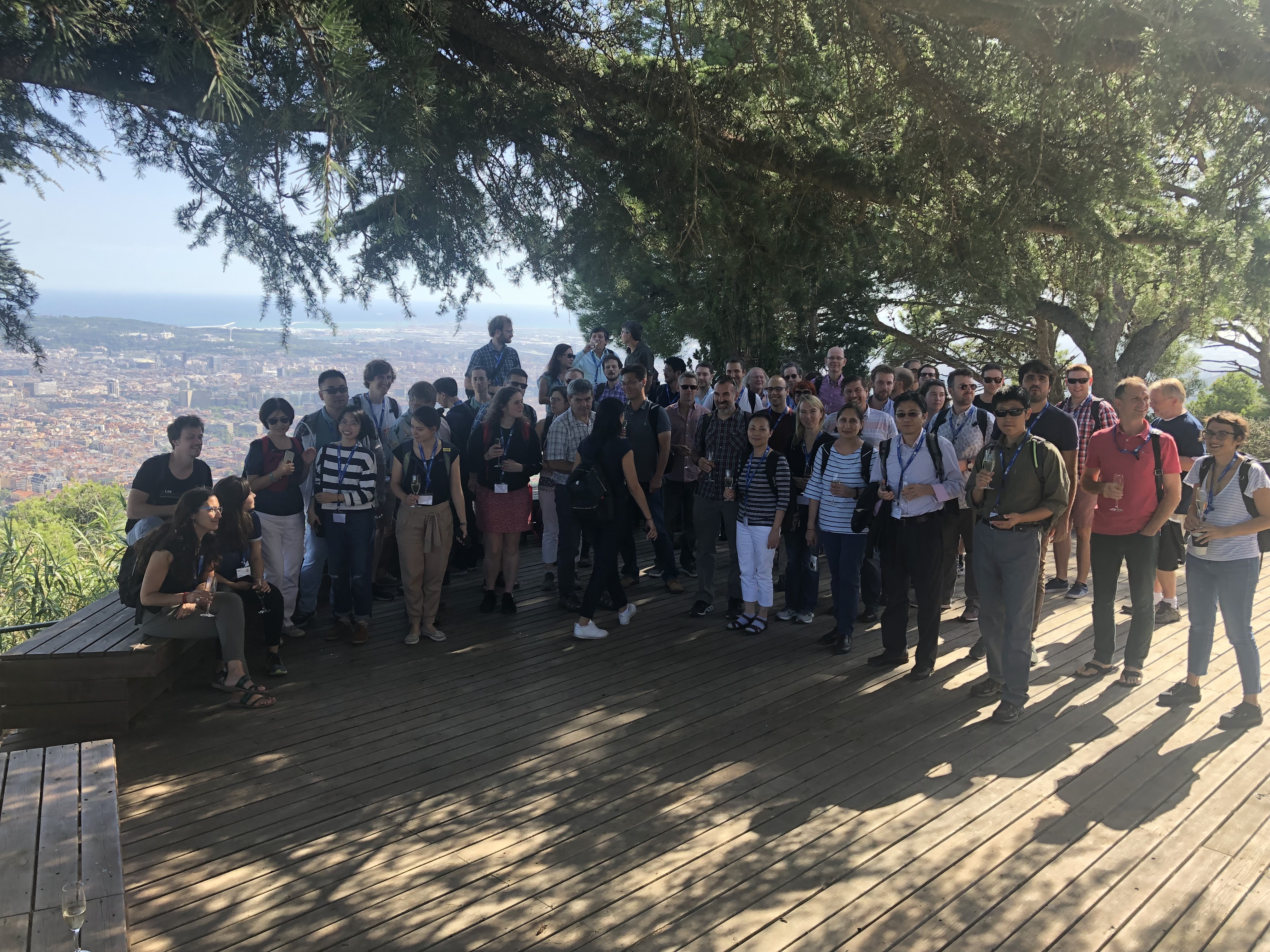 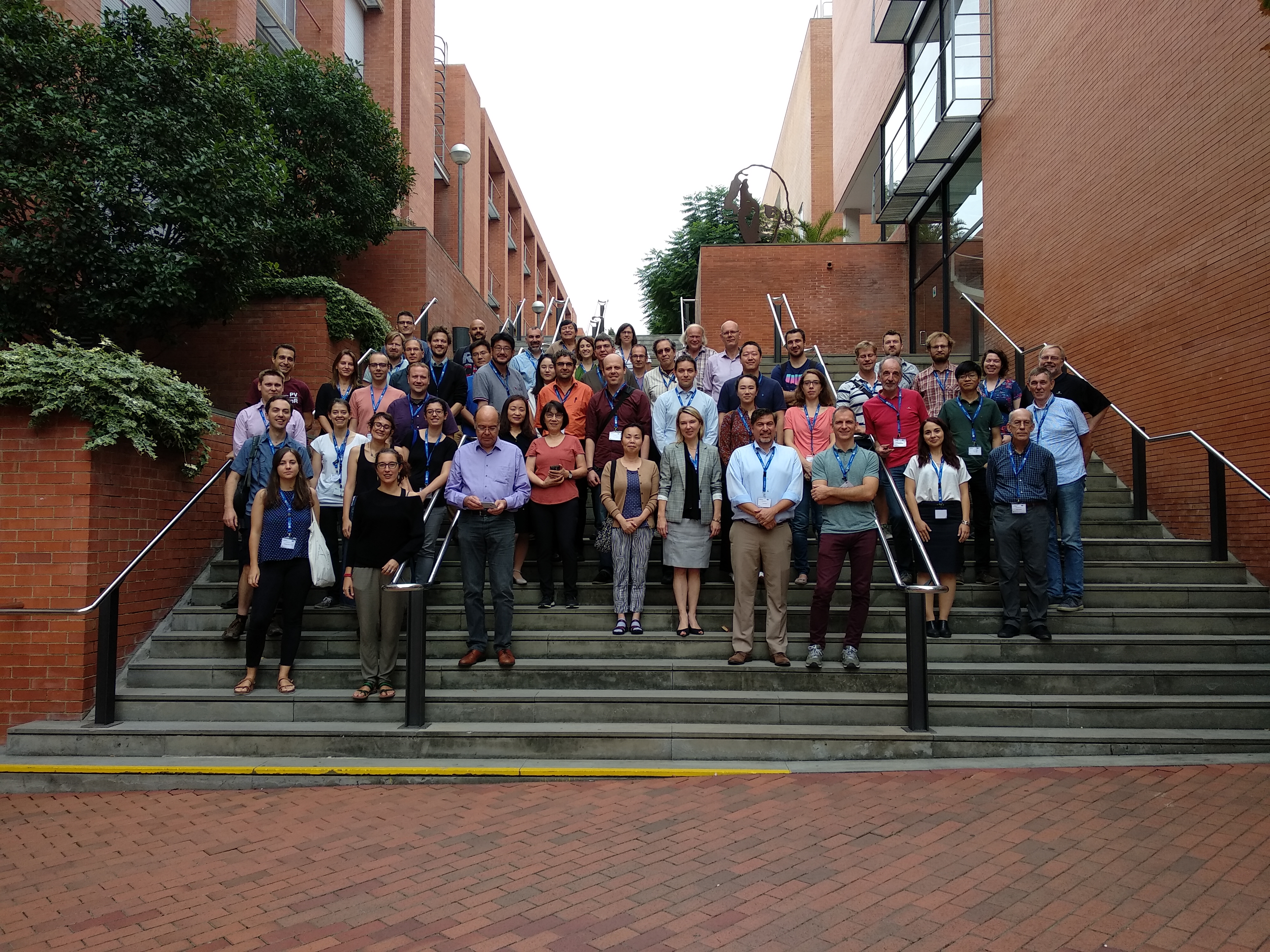 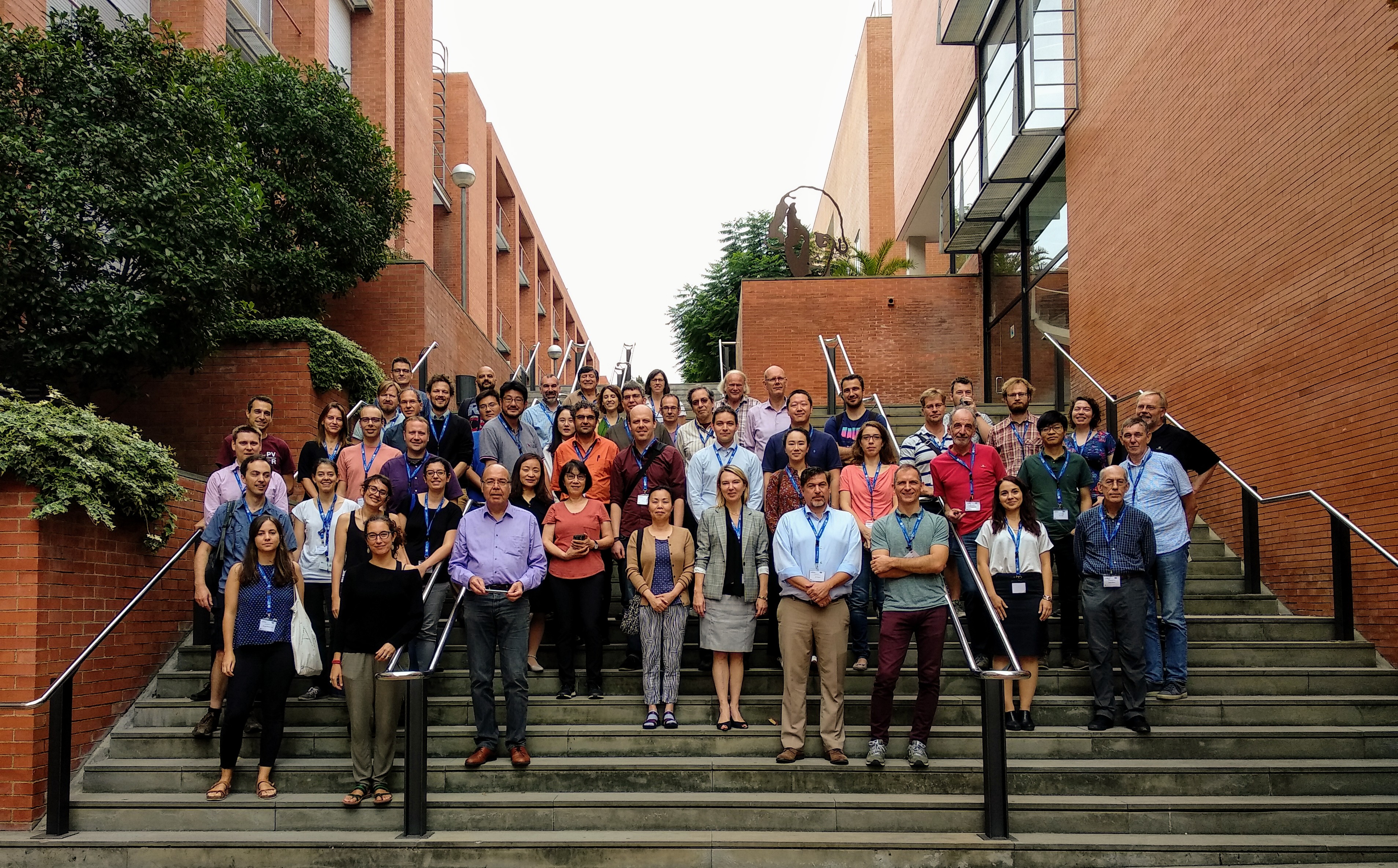 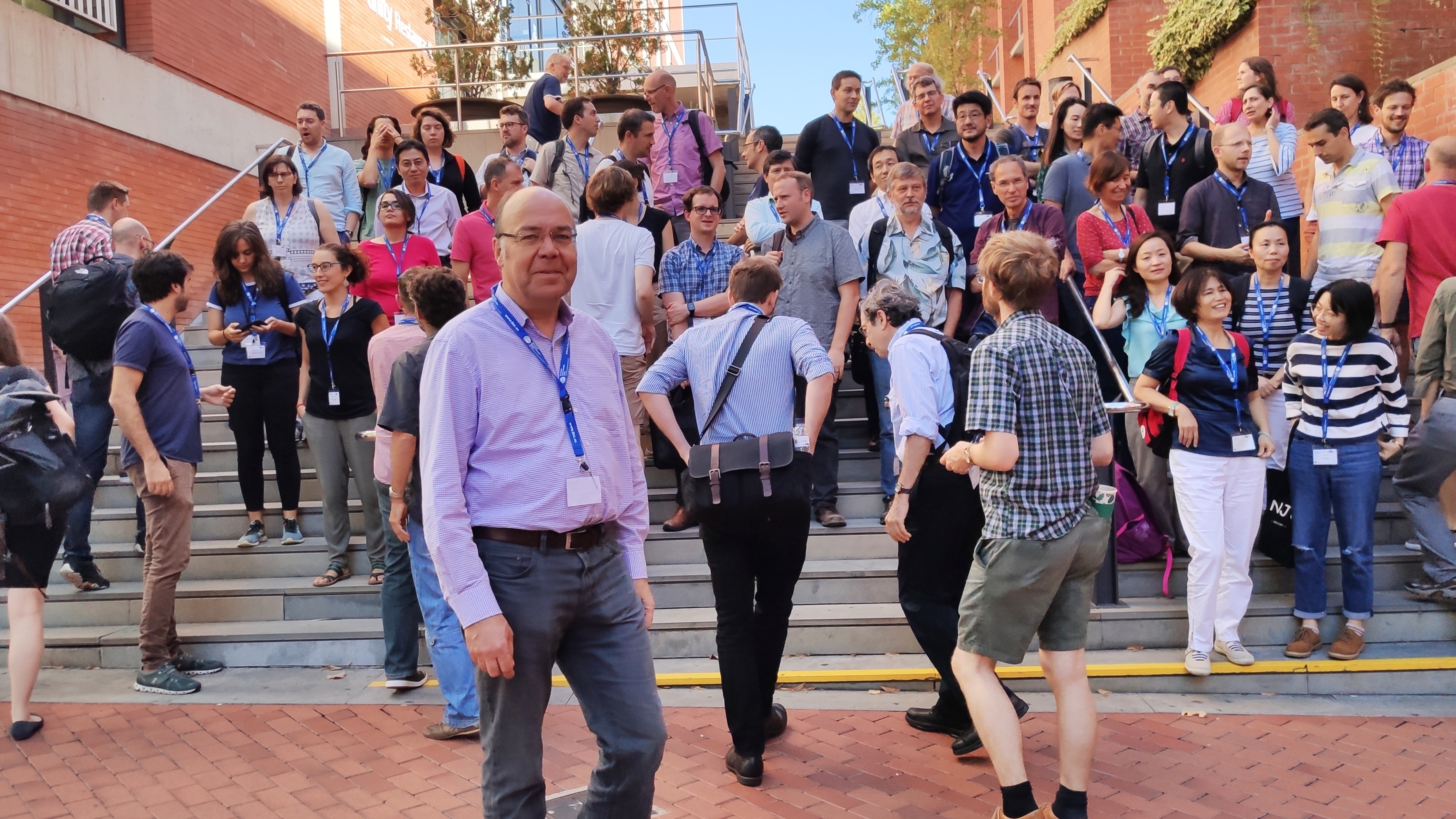 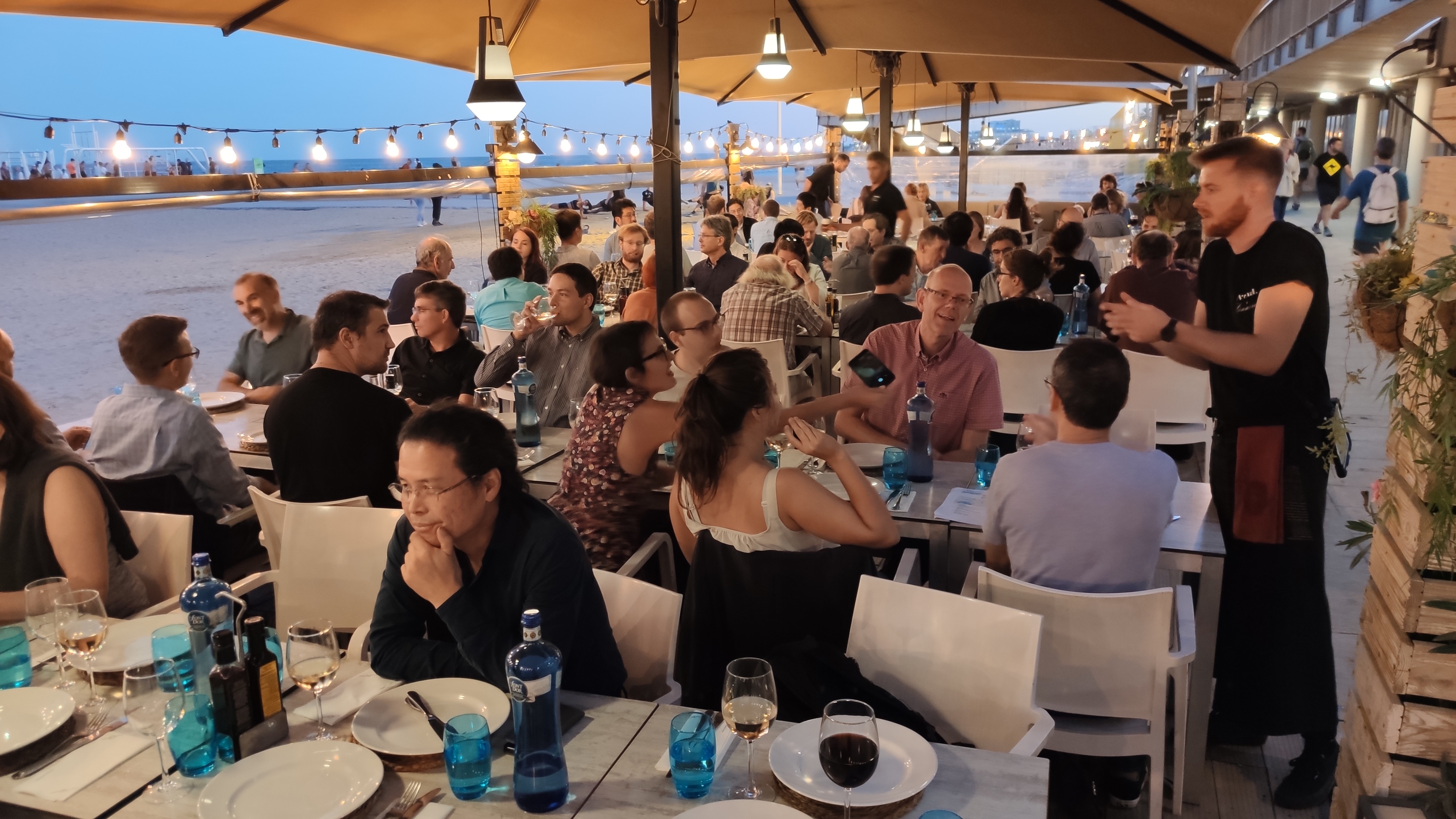
- program of the 18th AeroCom / 7th AeroSAT workshop
- participant list
- abstracts of all presentations
- AeroSAT perspective on collaborations with modeling
presented by R. Kahn and T. Popp
- observations and modeling in AeroCom
presented by M. Schulz
- Aerocom workshop goals
presented by M. Chin
- AeroCom session summaries by the session chairs
presented by M. Schulz
- AeroCom workshop summary and plans
presented by M. Schulz
- announcement for next 19th AeroCom / 8th AeroSAT workshop at Columbia University, New York, NY, USA in Oct 2020
introduced by K. Tsigaridis
- AeroCom historical experiment
by G. Myhre.
- historical aerosol forcing diagnosis (CMIP6, AerChemMIP and AeroCom)
by M. Schulz.
- The AeroCom Phase III Absorption experiment: First results
by B. Samset
- Constraining aerosol radiative forcing using aerosol absorption
by L. Deaconu
- AEROCOM/AEROSAT remote sensing experiment
by N. Schutgens
- AeroCom 2019 control exp. vs AERONET, EBAS, MODIS and ENVISAT
by J. Gliss.
- Do AeroCom phase III models reproduce observed trends in aerosols?
by A. Mortier
- water uptake on aerosol light scattering: comparison: six climate models
by M. Burgos.
- analysis of the simulations associated to the AeroCom anthro-dust exp
by P.Ginoux
- aerosols in the UTLS: a powerful diagnostic tool for model processes
by M. Chin
- Biomass Burning Emission Injection Height Experiment (BBEIH)
by X. Pan
- update on the Volcanic ACI experiment (VolcACI)
by F. Malavelle
- AeroCom Trajectory Experiment (GCMTraj): Progress and Initial Results
by P. Kim
- state of the AeroCom general aircraft experiment
by D. Watson-Paris
- (state of) the aircraft Atom experiment
by H. Bian
- New Particle Formation: AeroCom models vs NASA?s Atom mission
by C. Williamson
- Perspectives on modeling dust mineralogical composition and its effects upon climate
by C. Perez
- dust source attributions
by D. Kim
- modeling clear-sky vs. all-sky aerosol optical depth and radiative effects
by K. Tsigaridis
- Evaluating clear-sky fluxes in AeroCom
by W. Su presented by G. Myhre
- modeling clear-sky vs. all-sky aerosol optical depth and radiative effects
by M. Christensen
- decomposing the aerosol radiative forcing in atmospheric models
by E. Gryspeert
- base state vs susceptibility: which is more important for ERFaci?
by J. Muelmenstaedt
- cloud water adjustment to anthropogenic aerosols in climate models
by M. Wang
- constrain aerosol-cloud adjustments using idealized modeling
by D. McCoy.
- hemispheric contrasts in satellite-derived cloud microphysical properties
by I. McCoy.
- regime-dep. anthropogenic aerosol effects on different types of clouds
by K.Zhang.
- aerosol indirect effects by glaciating mixed-phase clouds
by X. Liu
- constraining parametric uncertainty in aerosol direct forcing
by D. Watson-Paris
- difference in sensitivities to climate change between BC and SU aerosols
by T. Takemura
- changes in anthr. PM2.5 and resulting climate effects during 1850?2010
by H. Zhang
- climate models miss most of the warming coarse dust in the atmosphere
by J. Kok
- local and long-range transport of dust aerosols over the Japan
by K. Aoki
- retrieving BC AAOD from refractive indices of AERONET retrievals
by G.Schuster
- observational constraints on aerosol forcing over the Southeast Atlantic
by S. Doherty
- aircraft/space infrared remote sensing observations of ammonia (NH3)
by M. Hoepfner.
- the OMPS_LP Stratospheric Aerosol Record
by O. Torres
- the NASA Micro Pulse Lidar Network: Overview of the new Version 3
by E. Welton
- a lidar aerosol simulator for the COSP 2.0 Framework
by D. Winker
- improve aerosol simulation over Amazon
by H. Bian
- are Biogenic Aerosols Climatically Significant in the Boreal Region?
by T. Mielonen
- radiative forcing by volcanic and dust aerosol in the stratosphere
by C. Bruehl.
- introducing ECMWF?s IFS-CB05-BASCOE-GLOMAP (ICBG)
by Z. Kilping
- NASA?s emerging vision for the ACCP mission
by D. Winker.
- reflections on GCOS and GAW mission
by P.Laj, presented by M. Schulz
- AEROSAT 2019 introduction / AeroSAT experiments
by T.Popp and R. Kahn.
- AeroCom wrapup for AeroSAT
by M. Schulz
- models constraining data session introduction
by P. Colarco
- AEROSAT 2019 introduction / AeroSAT experiments
by M. Christensen.
- summary of relevant comparison outcome for the satellite community
by N. Schutgens.
- sub-orbital data session introduction
by R. Kahn.
- concept for Systematic Aircraft Measurements to Characterize Aerosol Air Masses
by R. Kahn.
- sub-orbital data by ACTRIS
by L. Mona
- lab experiments and ACTRIS data for satellite retrievals
by C. Di Biagio
- aerosol typing session introduction
by G. De Leeuw.
- the REDAT aerosol typing database
by L. Mona
- satellite and ground based data for more accurate SSA at low AOD
by A, Lipponen
- climate data record session introduction
by K. Tsigaridis.
- A new perspective on satellite data
by A. Povey
- AOD L3 monthly (1996-2017) extension back to 1979 with TOMS AOD?
by L. Sogachewa.
- uncertainty session introduction
by T. Popp
- aerosol data assimilations and uncertainties
by J. Escribano.
- a framework for pixel-level uncertainty in aerosol satellite remote sensing
by A. Sayer presented by T. Popp
- new remote sensing techniques session introduction
by . Y. Govaerts
- current ACCP ?aerosol? payload options
by D. Winker .
- aerosol plume height climatology with UV/VIS satellite sensors
by J. Lee
- a new aerosol optical thickness research product over Cryosphere
by L. Mei
- new Deep Blue aerosol products from LEO and GEO satellites
by C.Hsu presented by J. Lee .
-
offers 1 page summary slides of poster-presentations of AeroCom/AeroSAT 2019 (in alphabetical order by author)
|
|
|
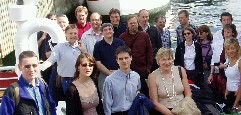
AEROCOM
is an international
science initiative
on aerosols and climate
supported by
EU Framework programmes
ACTRIS
MACC-II
EUCAARI
PHOENICS
Norw. Met Office
ESA-cci
Max-Planck Ges.
NASA
French CNES

|
| |
|